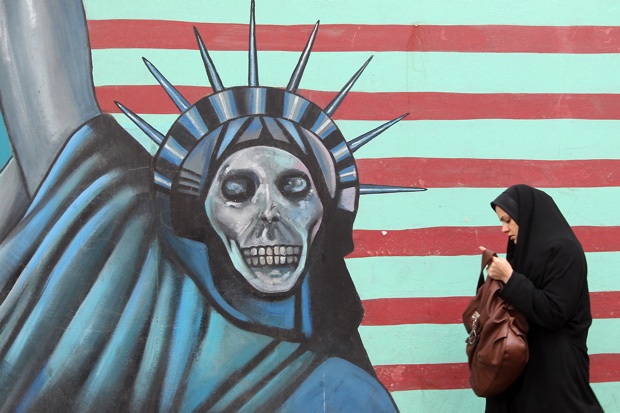Corbynmania has unleashed a great feeling of hope and change in the British public, especially among people hoping to wipe Israel off the face of the earth. Whether or not Jezza can be blamed for his links to activists with fascinating, esoteric views of the second world war, the accusations have focused attention on one particular aspect of 21st century politics: anti-Semitism on the left.
My colleague, Hugo Rifkind, raised the issue last week and has since enjoyed a lot of light-hearted, knock-about anti-Semitic banter. For example, here and here. Great stuff guys! I laughed, but anti-Semitism can be darkly funny as long as it’s spoken by the powerless and ineffective. Borat is amusing because Israel’s military strength prevents middle eastern anti-Semitism from ever being too effective; Borat with a German accent wouldn’t work quite so well.
The prejudice currently popular in Britain is a sort of Arabised version of the European original. Revived hostility is clearly spurred by large-scale migration from Islamic countries, and the influence of Islamists on the European hard left, with whom they have a lot of contact. Technology also allows people to find like-minded individuals and spread rumours about Israelis snatching human body parts and controlling birds of prey or whatever insanity it is this month.
But there is a less discussed cultural trend creating the perfect conditions for anti-Semitism to flourish: the idea of equality.
Anti-Semitism differs to most forms of racial prejudice in that it is aimed not at a group deemed to be inferior but one believed to be superior, or at least more financially or politically powerful. This is what makes it so dangerous, since market-dominant minorities have historically faced the worst violence. (We think of eastern European Jews arriving in Britain before the first world war as being impoverished, which they were, but to Poles, Ukrainians and Romanians back home they were seen as a privileged, educated minority.)
Hostility to market-dominant minorities is widespread across the world, whether it’s the Chinese in south-east Asia, Asians and Europeans in Africa, or whites in South America and, at some point in the future, the United States. Some of this anger comes from quite reasonable historical grievances, but it is often driven by plain resentment; we are poor, they are rich, therefore they must have cheated us.
Today it’s further aggravated by the fixation with equality of outcomes. It is most common in America, where the injustice of ‘white privilege’ is used to stoke anger without any real attempt to analyse the causes of inequality. At the heart of this is the Marxist belief that because one group does disproportionately well, there must be a nefarious explanation which involves the oppression or exploitation of other groups.
Once resentment against any one group’s wealth or influence is normalised, and once it is accepted that the West is responsible for every ill in the world, especially in the Middle East, it’s not a huge leap to focus a more intense hatred on one particular group of westerners who are particularly successful and have an interest in the region. Modern anti-Semitism is a concentrated version of the more acceptable anti-Westernism.
This is not to score political points; I’d be prepared to bet that there are more anti-Semites on the right than on the left, because people on the left tend to be less racially prejudiced on average, but it’s not as wide a gulf as it once was – at least on this side of the Atlantic.







Comments